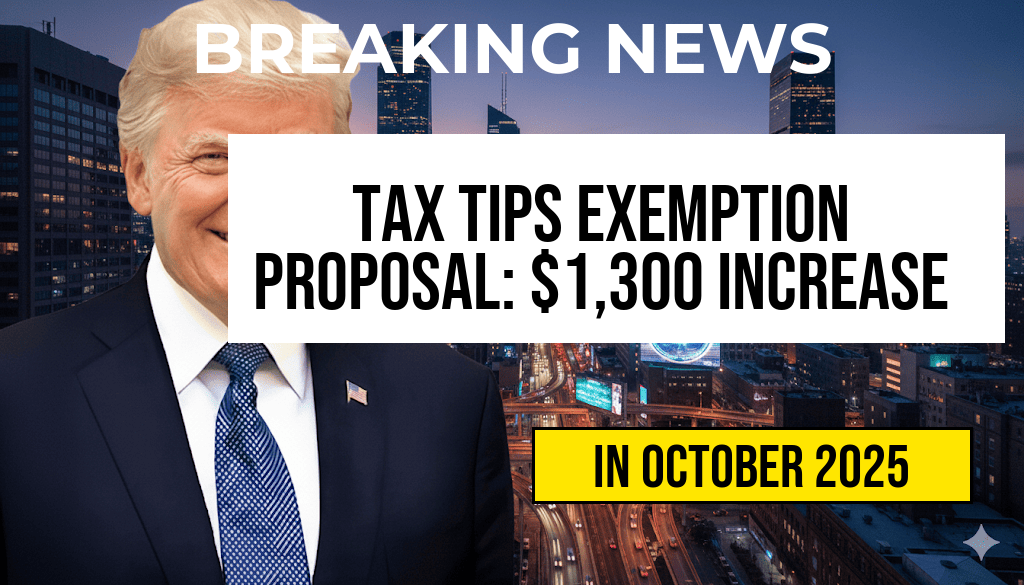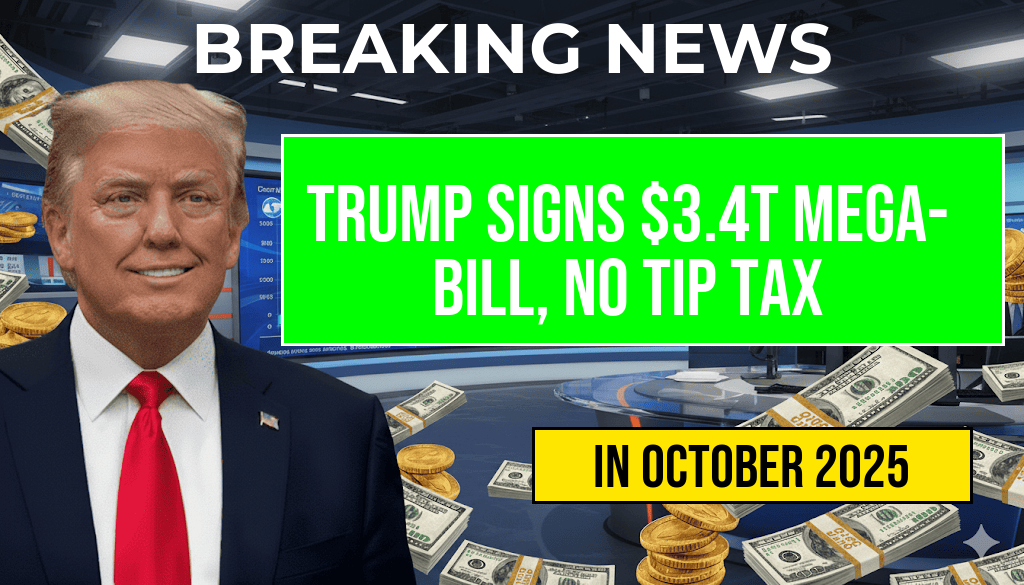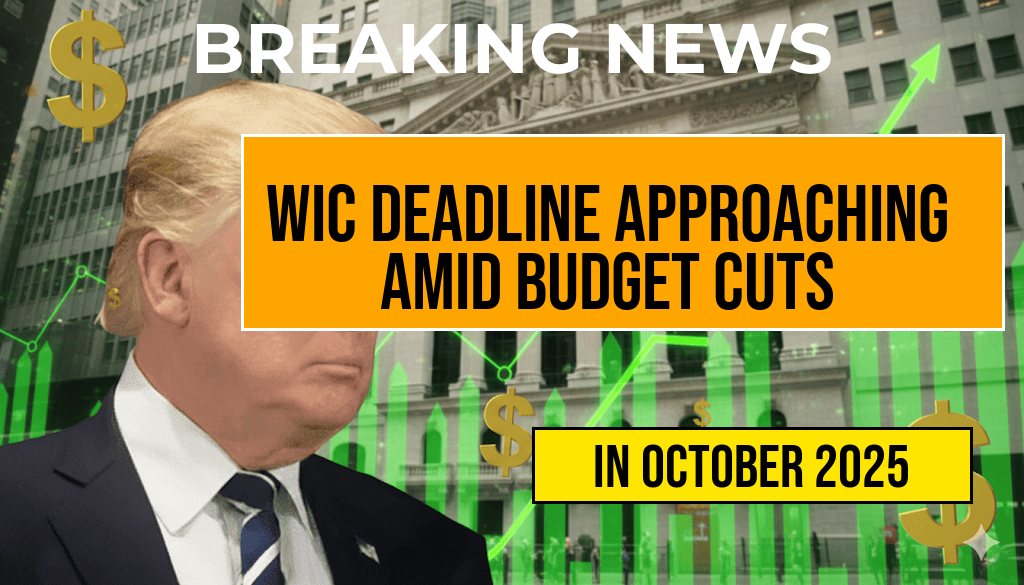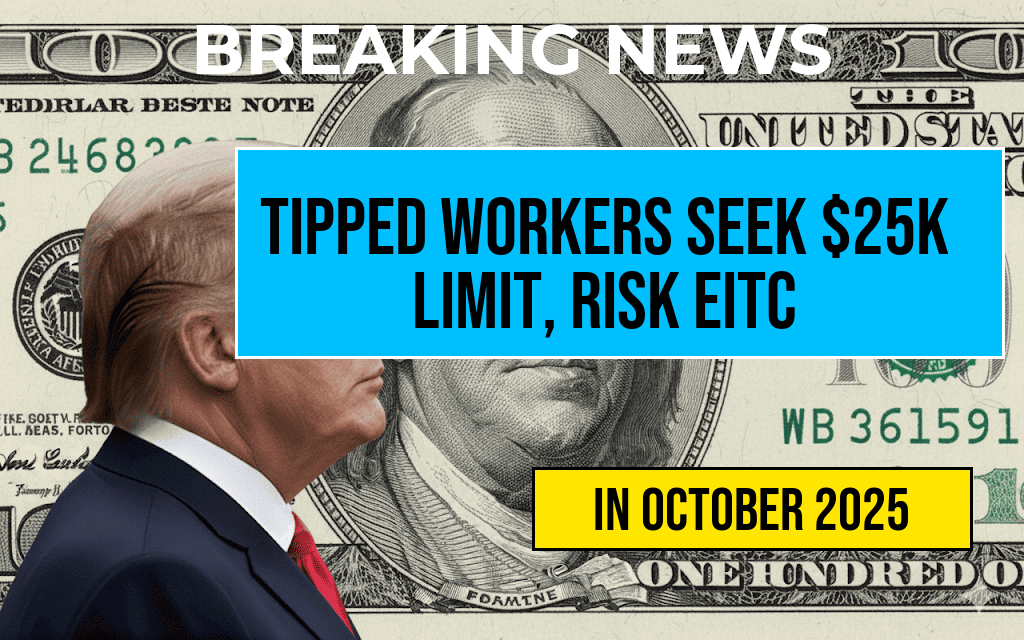President Trump Signs $3.4 Trillion Budget Legislation Amid Record Debt Increase and Tax-Free Tips Promise
President Donald Trump has signed into law a sweeping $3.4 trillion budget package that significantly boosts federal spending and expands the national debt by an estimated $4 trillion over the coming year. The legislation, approved by Congress after intense debate, aims to fund various government agencies, infrastructure projects, and social programs. Notably, Trump assured Americans that the new law would preserve a longstanding tradition by maintaining no tax on tips, a move designed to appeal to service industry workers and their advocates. The bill’s passage marks a critical point in the federal fiscal landscape, as the nation’s debt approaches levels unseen in decades, raising questions about long-term economic stability and fiscal responsibility.
Key Provisions of the Legislation
Major Spending Increases
- Defense and Infrastructure: The bill allocates over $700 billion for defense initiatives, including modernizing military equipment and increasing troop readiness. Infrastructure funding totals approximately $150 billion, aimed at repairing roads, bridges, and expanding broadband access.
- Social Programs: Funding for healthcare, education, and social safety nets receives a boost, with increases designed to address ongoing needs and pandemic-related recovery efforts.
- Research and Development: Investment in scientific research and technological innovation is expanded, supporting initiatives in renewable energy and emerging technologies.
Debt and Deficit Implications
| Current Debt Level (2023) | Projected Increase | Total Debt Projection |
|---|---|---|
| $33 trillion | $4 trillion | $37 trillion |
The legislation’s passage is expected to push the national debt to roughly $37 trillion, marking a sharp increase that raises concerns among economists and fiscal watchdogs. Critics warn that such borrowing levels could hamper future economic growth and burden taxpayers for years to come.
Tax Policy and the Tip Tax Exemption
One of the signature promises highlighted by President Trump during the bill signing was the commitment to keep tipping untaxed. Trump emphasized that tips would remain free from federal income tax, aligning with longstanding protections for service workers. This move is seen as part of his broader effort to support small businesses and the hospitality industry amid ongoing economic recovery efforts.
Implications for Service Industry Workers
- Income Stability: Workers who rely heavily on tips, such as waitstaff and bartenders, will continue to benefit from untaxed earnings, potentially increasing their take-home pay.
- Tax Enforcement: Authorities have assured that this exemption will be monitored to prevent abuse, though critics argue it could complicate tax compliance and enforcement.
Political and Economic Reactions
Supportive Voices
Proponents of the legislation argue that the increased spending is necessary to stimulate economic growth, rebuild infrastructure, and enhance national security. House Speaker Kevin McCarthy praised the bill as a balanced approach to tackling pressing issues while supporting American workers and military readiness.
Opposition Concerns
Opponents, including several Democratic lawmakers and fiscal conservatives, warn that the record borrowing could exacerbate inflationary pressures and lead to higher interest rates. Senator Elizabeth Warren criticized the bill for “adding to an already unsustainable debt,” emphasizing the need for fiscal discipline.
Broader Context and Future Outlook
The $3.4 trillion bill arrives amid ongoing debates over fiscal policy and economic management. Some analysts see it as a necessary response to immediate needs, while others fear it sets a dangerous precedent for unchecked government spending. As the debt continues to swell, questions about long-term sustainability and the potential for future tax hikes or austerity measures gain prominence.
For more on current federal budget priorities and debt figures, visit Wikipedia’s page on U.S. national debt or consult reports from Forbes on fiscal policy trends.
Frequently Asked Questions
What is the total value of the mega-bill signed by Trump?
The mega-bill signed by Trump is valued at $3.4 trillion.
How much will the national debt increase as a result of this bill?
The bill is expected to cause a $4 trillion increase in the national debt.
Does the bill include any taxes on tips?
No, Trump has promised that there will be no taxes on tips included in the bill.
What are the main areas of spending in the mega-bill?
The bill allocates funds to various sectors, including infrastructure, healthcare, and economic relief.
What is the significance of this mega-bill for the economy?
The mega-bill aims to stimulate the economy through large-scale fiscal spending but also raises concerns about debt levels and long-term fiscal sustainability.










